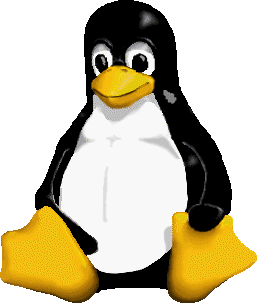Linus Torvalds and Linux
Today, a parable about giving versus selling. The University of Houston's College of Engineering presents this series about the machines that make our civilization run, and the people whose ingenuity created them.
My computer-wise friends have all been at me to do a program about the computer operating system Linux. That might strike you as odd, but Linux has almost religious implications among computer people. It has become an emblem of the altruism to which so much of the computer underworld aspires. Linux is an operating system, like those used to run Windows or Macintosh machines. Linux, however, is available to anyone, free of charge.
Back in the '60s, Denis Ritchie at Bell Labs developed one of the first operating systems and called it UNIX. UNIX was robust, and it's still used in many places, but not without modification. For it comes out of the computer's Jurassic Era. It was not the sort of thing you'd run on a PC.
In 1991, Linus Torvalds, a student in Helsinki, developed the primary program, called a kernel, for a new PC operating system. He based it on UNIX and adapted his own first name to give it the UNIX-sounding name of Linux. It was just a lark; he never meant to make a pile of money. He just meant to create an operating system with the solidity of UNIX that would work on PCs.
Six years earlier, Richard Stallman at MIT formed a group called GNU to promote the creation of free software. Stallman has been trying to replace the word copyright with the word copyleft. By that he means legal protection for giving ideas away -- preventing others from selling them for profit. Since Stallman had been developing software for a UNIX platform, he enlisted Torvalds to join with GNU in making Linux and its source code available free of charge.
By then, Microsoft was the primary seller of PC operating systems. But much of the work done on PCs doesn't need Windows compatibility. Linux caught on in a way that surprised even Torvalds. Today, upwards of twenty million people use Linux for servers, calculation, data acquisition, and much more. Much of the software you use on your PC is available in both Windows and Linux versions.
Users praise Linux for its robust stability. It's so stable because Torvalds makes his code available for anyone to see. He hears from the best computer people all over the world. They find bugs and think of improvements. In addition to Linux, GNU provides a vast amount of commercial-quality software: the Fortran, C, and PERL programming languages -- even the Netscape browser. And Netscape shares that user-shaped robustness with Linux. This openness has caught on, and Linux remains the centerpiece of open software.
And what about Torvalds? Does he kick himself for not becoming the new Bill Gates? Not at all, because cream floats and the world is more just than we might think. Torvalds can write his own ticket. Go to the web and meet his wife and young daughter -- catch the aura of confidence and contentment around this young idealist. The same subtlety that gave us Linux also shows the way in which rewards really do follow accomplishment.
I'm John Lienhard, at the University of Houston, where we're interested in the way inventive minds work.
(Theme music)
I am grateful to several people for their counsel on this episode. They include son Andrew Lienhard (who has been suggesting the subject for years), Greg Johnson of the UH Systems department (who proposed the idea more recently), and both Ralph Metcalfe and N. Shamsundar of the UH Mechanical Engineering Department. Many listeners have also wanted me to do a program on Linux. Essential to the GNU doctrine is the idea that source code must be made available to users so that they can improve it for their own use, if they so choose.
For more about Stallman's GNU group and its relation to Linux, Click here.
Torvalds' minimal personal web site gives us a nice view of the person: Click here
Torvalds has chosen this penquin as his logo.
